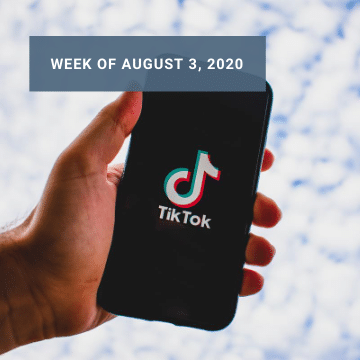Check out more of our interviews from our podcast episodes.
Open source gold
Focusing on open source software solutions could save the European Union billions of euros a year. That’s according to a new report conducted by OpenForum Europe (OFE) under the European Commission’s direction, which concluded that a mere increase of 10% in open source production could increase the EU’s GDP by nearly €100bn.
The study estimated that in 2018 alone there were over 260,000 open source contributors in the EU. The volume of code they produced amounted to the full-time work of 16,000 developers, generating between 65 and 95 billion euros in value.
The reveal comes as another study by IBM and O´Reilly suggests 94% of developers and technology managers prioritise open source skills over proprietary technology. Expertise in open-source tech like Linux and Kubernetes is almost twice (64.6%) as popular as skills tied to specific platforms like AWS or Azure.
All thanks to the rise of the hybrid cloud, which requires a unified, flexible IT infrastructure and is expected to grow by 47% in the next three years.
Filling the AI skills gap
Artificial intelligence could change all our lives for the better, freeing us from repetitive tasks and allowing us to enjoy more free time and devote our energy to higher-level activities. That is, of course, if governments and business leaders around the world are able to promote the re-skilling of the workforce and bridge the already problematic talent gap.
That was the conclusion of a panel of European institutional experts at The Economist´s recent Innovation@Work summit, which acknowledged AI must be regulated to ensure it is an assistance to people’s lives rather than a hindrance. Ensuring data quality is key, while nations need to set up technology training efforts that produce the talent companies need.
AI is one of the areas of IT where the talent gap is more apparent, especially as the technology keeps evolving at breakneck speed. Companies are a bit clueless regarding AI skills themselves. According to Gartner, 53% of business leaders believe the inability to identify skilled expertise is the number one impediment to workforce transformation.
Also discover our article: How AI will allow recruiters to focus on people
Big tech goes green
One of the biggest critiques that can be made about big tech companies, besides their near economic monopoly is the carbon footprint they produce. Server farms and data centres, mining of the precious resources need to build hardware, emissions tied to the distribution of products. You name it.
It is no surprise then that companies like Amazon, Google and Microsoft have made in recent years a pledge to reduce their impact on the environment and established ambitious goals for the near future. A move that has become all the more necessary considering mounting regulatory scrutiny by the US and EU governments.
The solution? Investing in clean energy.
According to an analysis by Bloomberg and the Financial Times, technology groups are the world’s biggest corporate buyers of green energy. From solar to wind farms, their clean-energy projects expand all across the globe, providing a growing portion of all their energy needs.

Join our community and find your next job or expert in IT

